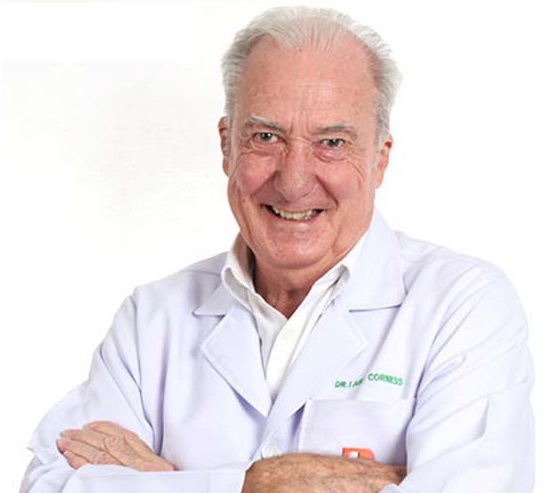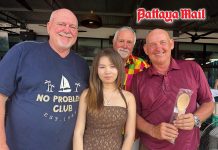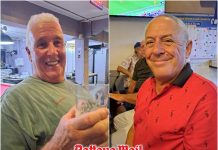 To become a doctor many years ago, was a long road. I remember as an undergraduate looking at Med 6 students and thinking “They’re all old men.”
To become a doctor many years ago, was a long road. I remember as an undergraduate looking at Med 6 students and thinking “They’re all old men.”
My road began many moons ago, though not quite as long ago as when JC played for Bethlehem United, but before Bic biros became commonplace and long before cling film and mobile phones. I had done very well in my scholastic life, partly through natural talent (said he modestly) and partly through un-natural pressure from my late father, who was a teacher at the school where I finished my secondary school education. Being a student where your father was on the staff was the pits? Dreadful!
I was unsure what career path to take, as all I wanted to do was go motor racing, so I was taken to an institute which would show those careers for which I was most suited. After innumerable tests, written and oral, my father and I were summonsed to hear my future direction. “He can do anything he wants to,” said the counselor to my father, as if I wasn’t in the room, thus losing my attention and respect immediately. We had traipsed in and out for these tests and I could do whatever I wanted to. Great! But I didn’t know what that was, as they don’t have trial career offers. “Let’s see if you should be an accountant. Pick up this pen and try pushing it…”
So it was home again and parental pushing. I had done well in maths and physics, so engineering was proposed. However, my late mother had been a nurse and I had enjoyed books like George Saba’s ‘Guerrilla Surgeon’, so I did have an interest in medicine as a career. I also worked out that if I became an engineer, I couldn’t be a doctor in my spare time, but if I became a doctor, I could fiddle about in engineering in my spare time (apologies to any engineer reading this)!
So it was Queensland University in Brisbane for six long years. Since those days, the more enlightened universities have made Medicine a post-graduate course and shortened it to four years. This way, the profession gets young people who really ‘want’ to do medicine, and nonsense subjects such as Botany are dropped from the curriculum (apologies to all botanists reading this, but I have not used one jot of botanical information in 50 years of being a doctor, but I do know the difference between a carrot and a banana).
My individualism brought me unstuck a couple of times. In those days, the consultants were given god-like personae. I had always considered that to become a deity, it should be given to you, not assumed and then lorded over lesser mortals. I was standing in the Medical School foyer when Dr Konrad Hirschfeld (Australia’s answer to Sir Lancelot Spratt – remember those movies?) barged in, a small portly man with a cigar. I did not move out of his way quickly enough and I was on the receiving end of “Don’t you know who I am, boy?” “Yes sir,” I replied, “But do you know who I am?” Individualism was not fostered in those days!
When we were first issued with ID cards, I read the reverse side which stated “This card must be carried at all times when on university property, and must be shown to any university staff member on demand.” I objected to the “must be” and the “on demand”, so I tore mine up. Very shortly I was summonsed to the Dean’s office. “Why did you tear up your ID card?” he asked. “Because I know who I am,” was my reply.
I ended up sitting my medical finals in the Royal Colleges of Physicians and Surgeons in London in 1966, after I had again upset the establishment in Australia (another long story of individualism and not really relevant today). Six years and 12,000 miles after I had commenced my medical course I rang my father reverse charges from London. Would he accept a call from “Dr.” Iain Corness? He did, and Dr. Iain Corness, with a shiny silver badge, was let loose on an unsuspecting British public!
 |
 |
 |





